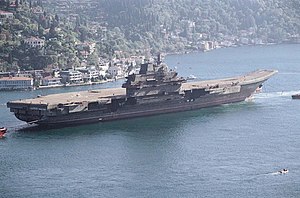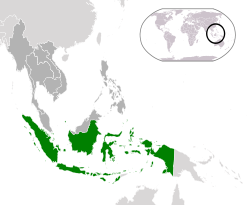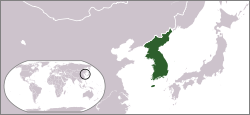Thursday, December 10, 2009
Final Readings Post
Wednesday, December 2, 2009
Readings
Institutionalism and Philippines
Monday, November 30, 2009
Not dead yet!
That's what the geezer said
No, he's not yet dead
That man is off his head
Australia Readings

It was difficult to find many readings on Australian security, and I had to settle for one about the new semi-alliance between Australia and Japan. However, it helps to fix some thoughts I've been having about the future of security in Asia.
Sunday, November 29, 2009
Search and Rescue Cooperation
Recurring theme
Wednesday, November 18, 2009
Readings Post
 This is what I think of when the Russian military comes to mind. This is a MiG that basically fell out of the sky during an air show. That's what the entire Russian military is like right now. All of the machinery is left over from the USSR. Therefore, I don't tend to worry too much about Russian military supremacy.
This is what I think of when the Russian military comes to mind. This is a MiG that basically fell out of the sky during an air show. That's what the entire Russian military is like right now. All of the machinery is left over from the USSR. Therefore, I don't tend to worry too much about Russian military supremacy. 
Asinine
The two countries reiterated that the fundamental principle of respect for each other's sovereignty and territorial integrity is at the core of the three U.S.-China joint communiqués which guide U.S.-China relations. Neither side supports any attempts by any force to undermine this principle. The two sides agreed that respecting each other's core interests is extremely important to ensure steady progress in U.S.-China relations.
The two sides welcomed all efforts conducive to peace, stability and development in South Asia. They support the efforts of Afghanistan and Pakistan to fight terrorism, maintain domestic stability and achieve sustainable economic and social development, and support the improvement and growth of relations between India and Pakistan. The two sides are ready to strengthen communication, dialogue and cooperation on issues related to South Asia and work together to promote peace, stability and development in that region.
Obama's Trip
 Overall, I'm really happy with Obama's trip abroad. Despite some cranks, Obama presented an America comfortable with its roles and comfortable with its relations to its allies.
Overall, I'm really happy with Obama's trip abroad. Despite some cranks, Obama presented an America comfortable with its roles and comfortable with its relations to its allies. Sunday, November 15, 2009
North Korean special forces
Makes me happy
Thursday, November 12, 2009
Indian/Japanese Relations
Preparing for any eventuality

Armchair Generalist links to a Defense News piece about US-ROK plans for dealing with DPRK nukes after the regime falls apart. I'm glad that the Pentagon has realized how much more dangerous North Korean instability can be than North Korean attack. In particular, nobody wants rogue elements within the North Korean state (or starving scientists in the worst-case post-Soviet scenario) getting those bombs or even the nuclear material. While I'm not saying that this should be the center of planning, it is important.
Wednesday, November 11, 2009
Still going to have bilateral talks with North Korea
 It is sad to see some talking about an end to the "special relationship" with Japan. As the strongest, longest democracy in East Asia, this relationship has helped to maintain stability and prosperity for both sides for 50 years now. In particular, I hope that Obama can get things back on track, particularly after some impolitic moves by SecDef Gates.
It is sad to see some talking about an end to the "special relationship" with Japan. As the strongest, longest democracy in East Asia, this relationship has helped to maintain stability and prosperity for both sides for 50 years now. In particular, I hope that Obama can get things back on track, particularly after some impolitic moves by SecDef Gates. Readings Post

Tuesday, November 10, 2009
Thai/Cambodian Rift
Monday, November 9, 2009
Korean Firefight
Okinawa
 I often wonder about the usefulness of any given military base. One good example of this is the massive base in Okinawa. It is tremendously unpopular with the people of Okinawa, who have fairly consistently asked for the US to leave. (At the same time, it seems pretty clear that the Okinawans want the Japanese out, despite being legally part of Japan.) From any kind of liberal democratic standpoint, maintaining the base there against the wishes of the inhabitants screams colonialism, even if it is abetted by the "national" government (that many Okinawans also do not recognize).
I often wonder about the usefulness of any given military base. One good example of this is the massive base in Okinawa. It is tremendously unpopular with the people of Okinawa, who have fairly consistently asked for the US to leave. (At the same time, it seems pretty clear that the Okinawans want the Japanese out, despite being legally part of Japan.) From any kind of liberal democratic standpoint, maintaining the base there against the wishes of the inhabitants screams colonialism, even if it is abetted by the "national" government (that many Okinawans also do not recognize). Wednesday, November 4, 2009
 So, just as North Korea announces that it is producing more nuclear material, one of the other rock-star heads of state is taking a stab at dealing with, though not in person.
So, just as North Korea announces that it is producing more nuclear material, one of the other rock-star heads of state is taking a stab at dealing with, though not in person. Monday, November 2, 2009
Definition of Insanity
Sunday, November 1, 2009
Dalai Lama and China, round 5,256


Wednesday, October 28, 2009
Reading Post IX
Manea, Maria-Gabriela, "How and Why Interaction Matters: ASEAN's Regional Identity and Human Rights" Cooperation and Conflict, vol. 44, no. 1, pp. 27-49, Mar 2009
Christopher Hemmer and Peter J. Katzenstein, “Why is There No NATO in Asia? Collective Identity, Regionalism, and the Origins of Multilateralism,” International Organization, Vol. 56, No. 3 (Summer 2002), pp. 575 - 607
Nishikawa, Yukiko, "The "ASEAN Way" and Asian Regional Security," Politics & policy 2007 35, 1 42 -56
Ruukan Katanyuu, "Beyond Non-Interference in ASEAN: The Association’s Role in Myanmar’s National Reconciliation and Democratization," Asian Survey December 2006

Tuesday, October 27, 2009
Good thinking!
Regionalism and Transnationalism

This is a region with a dizzying difference in incomes (far more than the original EEC, I believe, with Singapore having 150x the per capita GDP of Burma), with very diverse political structures (from democracies in the Philippines, South Korea, and Japan, to autocratic one-party systems like China and Vietnam, to family autocracies like Singapore, and even a military junta in Burma), and with very different identities (Christian, Muslim, Buddhist, Confucian, and atheist, not to mention the extremely large number of ethnicities and nationalities). This project will have every single problem the EU had, and then some. Some of the players even want to include the US and other non-Asian countries. I expect this to be a nice idea, floated around, but then quietly set aside.
The Economist on North Korea
Thursday, October 22, 2009
Interesting scuttlebutt
 There are changes afoot on the Korean peninsula, but it doesn't seem like any grand change in the overall situation.
There are changes afoot on the Korean peninsula, but it doesn't seem like any grand change in the overall situation.On the Southern side, the US has once again pledged to defend South Korea, going so far as to say that South Korea is under the US nuclear umbrella. I'm not sure anyone really doubted that fact, but having the SecDef say it definitely gives it more oomph. More important was the side-by-side agreement Gates and ROK Defence Minister Kim Tae-Yong showed. At the same time, the timetable for full ROK command of its own forces in wartime is still on track for 2012. This is great news for the Korean state, which has long felt slighted by the provisions of previous agreements that put ROK forces under the command of the US, but I have to admit to some slight worry over C&C issues should war break out at that point. I'm hoping that the US and ROK forces are strongly putting together all the joint-planning systems they will need to coordinate.
More importantly, however, in that same article SecDef Gates says that the US and ROK forces are planning for what is probably the likeliest scenario, a full break-down in internal order in DPRK. There were no details, but I'm glad to know that our leaders have realized how likely that is, and how deleterious.
This is especially important now that the succession plans in DPRK are apparently becoming more dicey. Apparently Kim Jong-Il is not happy with how his son, Kim Jong Eun has been handling his responsibility over the military. Moreover, North Korean officials who visited South Korea several months ago to attend the late President Kim Dae Jung's funeral were exceptionally solicitous, and took a harangue by President Lee Myung-bak very courteously, promising to try to stop northern provocations.
This worries me, in some ways. A strong North Korea could be disastrous, particularly if it decided it was strong enough to attack South Korea. On the other hand, a very weak North Korea could collapse entirely. Moreover, North Korea is not East Germany; I don't think it will meekly accept merger with South Korea on its own terms, at least not with the Kim family in charge. This is a monarchy, not a Communist country, and so the preservation of the monarchy becomes vastly more important. There is no way for a "new generation" of leaders to come in except through a literal dynastic change, and then that leader will have more interest in the preservation of that system than a man who worked his way up from the ground floor. (Yes, this is an argument based on constructed identity, not raw power. So sue me.) While there have been kings who have liberalized, I'm not sure it will be possible in North Korea without unleashing a tidal wave, ending in the dissolution of the DPRK and the rest of the world picking up the pieces.

This is what will be unleashed on the region. I know that merely being polite does not mean that North Korea is weak, but along with rumors of succession issues on top, it makes me worry. It also makes me doubly glad that Gates and Kim Tae-yong are working on that issue now.
Wednesday, October 21, 2009
Reading Post VIII
Tuesday, October 20, 2009
Reading Post VII
This week, I attempted to do readings on security in Southeast Asia, specifically the peninsula south of China. However, I found very little about any country other than Thailand. I did read one article about the theoretical institutional balancing of some ASEAN countries, which was not really pertinent.
China might yet get a carrier!

It looks like China is finally working on getting the Varyag up and running, at least according to the New York Times. Though it seemed, at first, to be a silly notion for China to spend so much time and money developing an aircraft carrier, it makes more sense to me now. The country feels the need to project power into (at least) the Straits of Malacca, and preferably out to the "American defense belts".
Reading Post Issues
Wednesday, October 14, 2009
SCO Meeting results in nothing in particular
Monday, October 12, 2009
Unpopular view

But, really, at what point does it become not worthwhile to fight an insurgency anymore?
Hearts and Minds in Xinjiang

There is a reason why the rule of law is so precious in any country, even China. Sometime yesterday, 6 men were convicted and sentenced to death for their parts in the riots in Xinjiang in July. Of course, there are many people (particularly in the Muslim community in China) that are convinced it is a sham.
Thursday, October 8, 2009
Reading Post VI

This week, the topic is Indonesia. I will confess, I know a lot less about Indonesia than I do the other countries surveyed so far. My academic focus has long been Northeast Asia (specifically the Chinas and the Koreas), and so the rest of the course will involve a lot more eye-opening for me.
Oh, and speaking of Taiwan...
I do believe this would be the ultimate deterrent against any action across the Strait.
(h/t War is Boring)
China/Taiwan News

Apparently, Taiwan is working on an littoral warship of its own. I find it interesting that so many countries are recognizing the importance of the "near coast" waters. Once upon a time, those were the only ones every contested; the ability to fight in blue-water is a fairly new development. And yet almost all of our tech is devoted to fighting in the blue-water. Moreover, for a country like Taiwan, all of the fighting it has to worry about will be in the Taiwan Strait. It needs something small and fast that can disrupt amphibious assault ships, and this (which is stealthy) could fit that bill.
Wednesday, October 7, 2009
More substantive posts to come...
Monday, October 5, 2009
China and North Korea

There has been a lot of activity in Northeast Asia this past weekend, and I've been trying to process it all.
Thursday, October 1, 2009
Linked, tangentially, to the last post

Apparently, the US is going to be engaging in talks with Burma/Myanmar as well as Iran. If North Korea is the worst, most evil regime on the planet today (and the evidence, based on deaths and malnutrition today is pretty good), Burma might well be the second. The response to both the protesting monks two years ago and the cyclone last year show that the regime has no care for the lives of its citizens. (I am willing to grant that Sudan should also be in the competition up here.)
And yet, again, isolation of the country has done no good, and instead made the people poorer. Moreover, it's fed into a paranoia that prevents any real progress in Burma. I am not for an instant pretending that engagement with Burma will cause it to become a democratic wonderland. It won't. I'm not pretending that it will cause the release of Kyi. It won't.
But neither will continued sanctions and isolation. It hasn't worked, and it won't work. (I hesitate to say that it never works, but I've yet to see an example of utterly isolating a country from the international community causing the regime there to do anything other than double down.) Sanctions are most effective against a country that doesn't think it will have future conflict with you. That does not sound like the US-Burmese relationship.
At the very least, opening up dialogue allows for some movement towards making the lives of the Burmese people better in some objective way. Nothing needs to be given away to open up discussion.
Wednesday, September 30, 2009
Makes the heart bleed

I am willing to accept the fact that I am, in fact, a bleeding heart liberal. There are limits to this (including famous people who get away with heinous crimes and live in "exile" more comfortable than the majority of people's lives...), but a story like this about reunions between North and South Koreans really tugs at the heart strings.
Reading Post V

This week: Korea.
Asian Perspective - Volume 32 - Number 4 - 2008 Special issue on North Korea and Regional Security Guest Editor: Mark J. Valencia
Arms Control Today, North Korea Nuclear Test Focus , November 2006.
Because the Rozman and Lee piece does not focus on the North Korean nuclearization issue directly, but instead is concerned with the ROK-Japan relationship, I will start with it. I found it very helpful, because all too often we in the US focus on our own bilateral relationships at the expense of the relationships between our allies. It does not shock me that rising nationalism in both countries led to difficulties between the two, but it essential for the US to do what it can to build up the ties between South Korea and Japan.
At the same time, things have changed dramatically from the time of this article. The article came out at roughly the same time as the nuclear test by North Korea, which is not referenced, and there is a more conservative government in South Korea now along with a brand new government in Japan as well. The new government has made some sounds about being less reliant on the US and reaching out to the governments in the region, and this would be a great opportunity. While (apparently) the Japanese Constitution prevents Japan from having any official allies other than the US, the recent uptick in aggressive action by North Korea shows the need for coordination and cooperation between Japan and South Korea. Both have a history of being hit by small scale North Korean aggression (and in particular abductions of their citizens).
The Arms Control Association readings were very technical and gave a good overview of the problems with the North Korean tests, along with a timeline and technical analysis. As a collection of mostly factual pieces, it is difficult to really give a reaction However, much of what was in it were things I already knew, except for the number of warning given by North Korea and China prior to the test. However, the fact that all of this was written 3 years ago again demonstrates the fact that it is pretty unlikely that North Korea will denuclearize at this point. It's been very rare for any country to give up nukes, and no country that has developed nukes of their own have given them up. (Many states have given up nuclear programs, but only FSUs have actually given up nuclear weapons, and those were old Soviet weapons.)
The issue of Asian Perspective helps to put the nuclear weapons issue into more context, with great info on the Six Party Talks. While many of the writers see great potential for the expansion of the Six Party Talks into a forum for regional issues, I find myself rather skeptical. The Six Party Talks have not accomplished any of its original goals, such as ending the North Korean nuclear issue.
I agree, however, with several of the writers who suggest that the US make some unilateral concessions to North Korea, in order to build confidence and trust. Of course, by "concessions" we mean be willing to make a real peace treaty and agree that we won't invade them for no good reason. These are things that just about every other country can take for granted, and Americans like to think that everyone should just know about us anyway. If we can't agree to not invade North Korea, then of course they are going to be paranoid and want every weapon possible to fight us off. Maybe they wouldn't believe us if we made the commitment, but they're not going to believe anything from us if we DON'T make that commitment.
I think it's become obvious that a strict militaristic, bombastic approach to foreign policy is pretty much bankrupt. Moreover, I don't want to make the case that the US should forswear the right to use military power abroad; that would never fly, and there are cases where it is necessary. But a limited security agreement, in which the US will not seek to overthrow the DPRK regime and that the US will not use force against the DPRK without some kind of threat or international consensus, would at least be a start. It will go further than additional sanctions, esp. as a typical Drezner analysis would show only small concessions.

